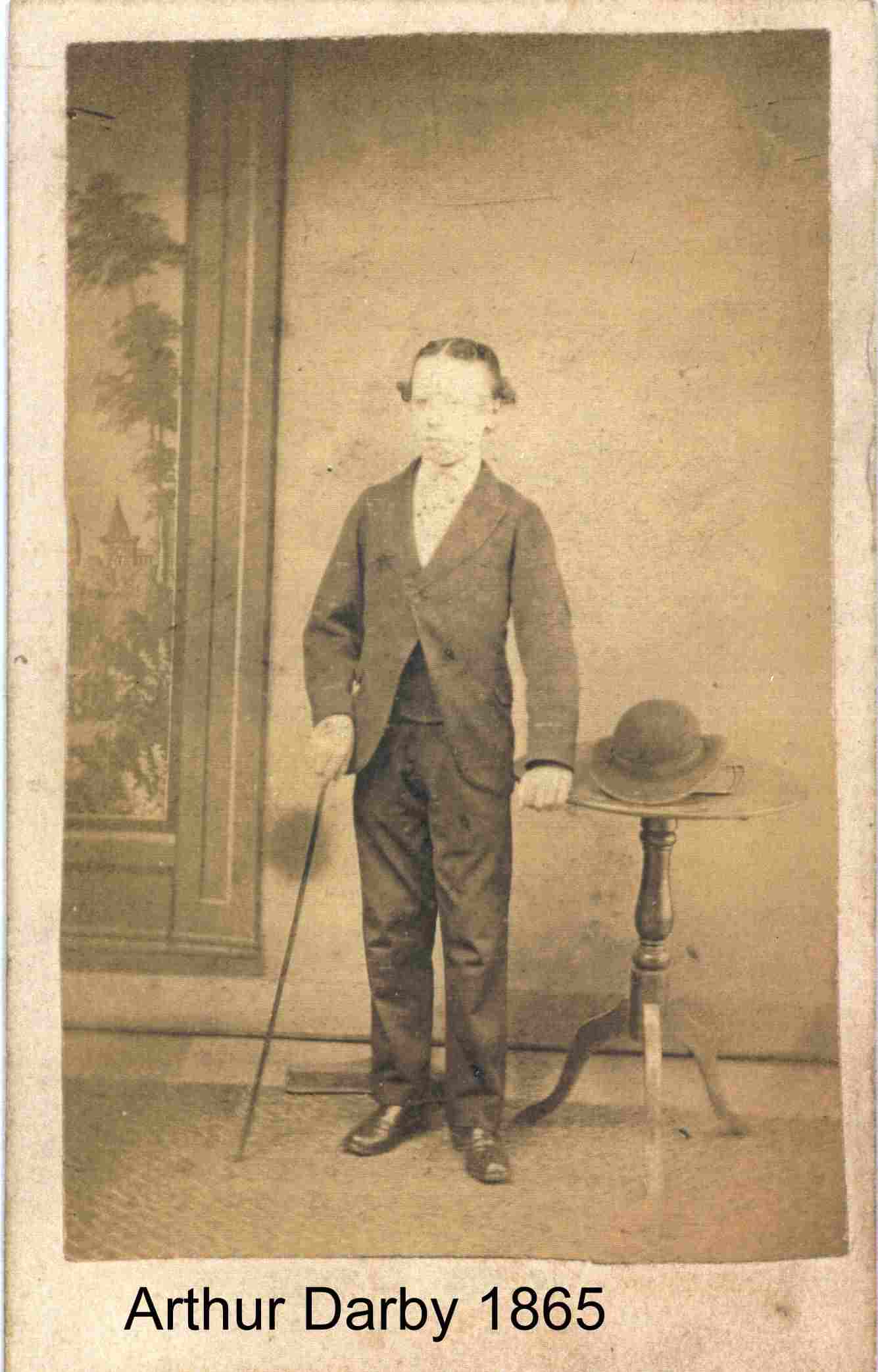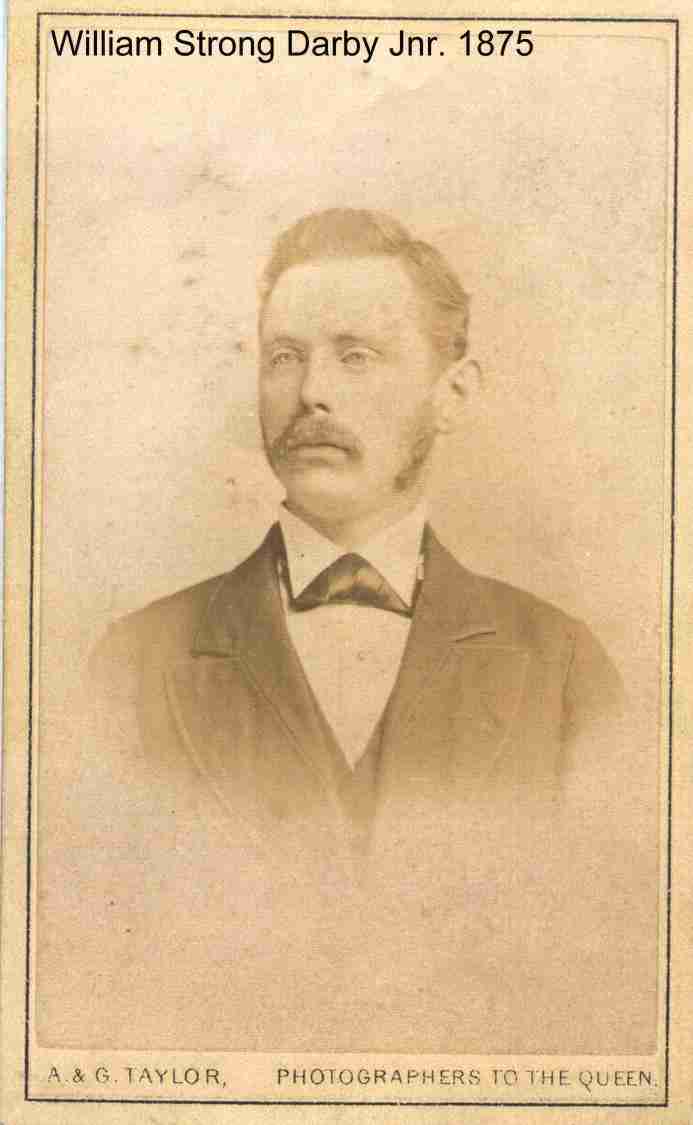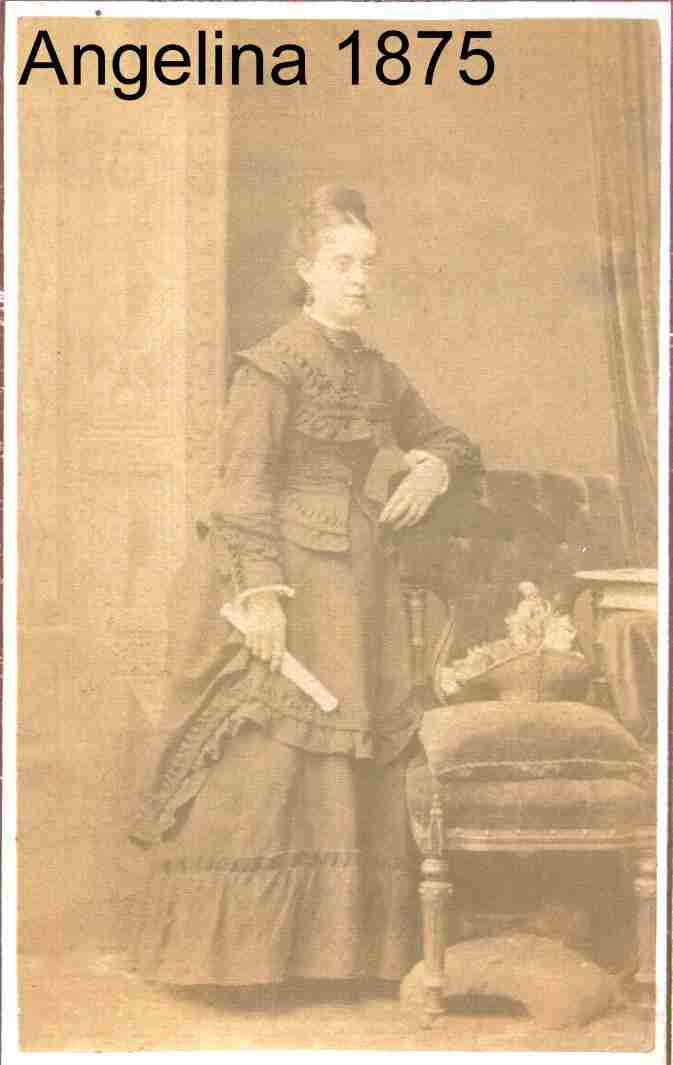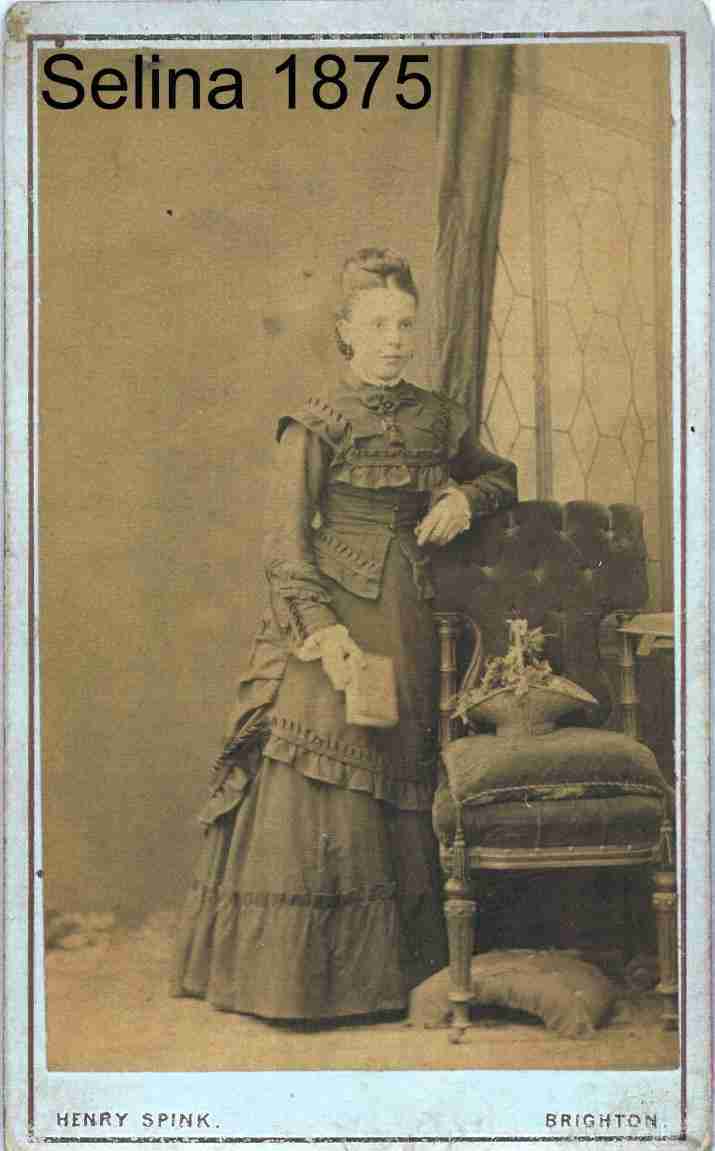And so
William saw out the turbulent 1860s, as the world around him became more solid, more
settled, more 'victorian', and the more rumbustious, Georgian days of his youth seemed to
have been lived in another land entirely. Even the new Metropolitan 'underground' railway
had arrived nearby, if you could endure travelling behind a steam locomotive in a smoke
filled endless tunnel. There was talk of cleaning up the muddy, ragged and boat strewn
north shore of the Thames and building something they called a 'grand embankment'. And
although the cholera had revisited in 1866, and very close by, too, even the water was
becoming safer to drink.
But during the 1870s the emphasis in William's business turns decidedly away from rags and
onto bottles. A great many bottles. Perhaps the change was driven by William junior, now
entering his twenties, whose character seems to have been made up of hot ambitions and
grandiose aspirations combined with self-defeating flaws of character. The records show
both William junior and Arthur working in the business, with  intervals
elsewhere, as is the way with young men -- Both boys could also 'handle horses', as Teddy
testified, they had, after all, grown up surrounded by them. And indeed, William junior,
in his longest departure from the family 'firm' was employed as a carman, the horse-drawn
equivalent of a city
intervals
elsewhere, as is the way with young men -- Both boys could also 'handle horses', as Teddy
testified, they had, after all, grown up surrounded by them. And indeed, William junior,
in his longest departure from the family 'firm' was employed as a carman, the horse-drawn
equivalent of a city delivery van driver, which
required a high degree of skill. (Young Arthur spent some time working for a baker, and
even that could have been leading a horse van around the local streets) -- But we know
there were tensions, sharp fallings out and gradual reconciliations. Perhaps, being
impetuous, William junior felt frustrated by his more easy going father and brother, while
they were wary of a streak of irresponsibility on his part. A commercial interest in
bottles was also featuring at this time in the lives of some others who had left their
roots in Hallingbury and Bishops Stortford and made their way to London. And one version
of events, reputedly William's own, posits a connection. After the failure of the
stage-coach business, and Henry Gilbey's death, his sons, Walter and Alfred, William's
younger Stortford contemporaries, after spending some time in the Crimea as War Office
clerks, began to dabble in the then not very flourishing wine importing business. Their
timing was impeccable, because, soon after, the Chancellor of the Exchequer, a certain Mr
Gladstone, reduced the import duty, and the new victorian bourgeoisie discovered a taste
for continental wines. Soon the Gilbey brothers had sufficient capital to start distilling
every English mother's favourite medium of ruination -gin. They also began opening
wine-shops, which catered to the new cult of 'respectability', by enabling mothers who
wished to experience a little modest and genteel ruination, to do so without having to go
near that temple of unrespectability, a public house.
delivery van driver, which
required a high degree of skill. (Young Arthur spent some time working for a baker, and
even that could have been leading a horse van around the local streets) -- But we know
there were tensions, sharp fallings out and gradual reconciliations. Perhaps, being
impetuous, William junior felt frustrated by his more easy going father and brother, while
they were wary of a streak of irresponsibility on his part. A commercial interest in
bottles was also featuring at this time in the lives of some others who had left their
roots in Hallingbury and Bishops Stortford and made their way to London. And one version
of events, reputedly William's own, posits a connection. After the failure of the
stage-coach business, and Henry Gilbey's death, his sons, Walter and Alfred, William's
younger Stortford contemporaries, after spending some time in the Crimea as War Office
clerks, began to dabble in the then not very flourishing wine importing business. Their
timing was impeccable, because, soon after, the Chancellor of the Exchequer, a certain Mr
Gladstone, reduced the import duty, and the new victorian bourgeoisie discovered a taste
for continental wines. Soon the Gilbey brothers had sufficient capital to start distilling
every English mother's favourite medium of ruination -gin. They also began opening
wine-shops, which catered to the new cult of 'respectability', by enabling mothers who
wished to experience a little modest and genteel ruination, to do so without having to go
near that temple of unrespectability, a public house.
The
supposed connection is no more specific than this : "Gilbey looked after the gin,
Darby looked after the bottles". This has been construed in several ways, but given
the dates of the Gilbeys career, and the coinciding shift in the Darby business, the most
plausible is that William took advantage of his connection to secure a franchise on the
handling of some of the Gilbeys' empties. That would explain the sudden expansion of his
bottle business to the exclusion of his other previous lines. Certainly, one of the early
Gilbey Wine Shops was in Portobello Road, at number 156, tucked into a corner of what had
been, since 1852, Mr George Corsbie's shoe shop. Although there are no records, Mr Walter
Wright, the Gilbey archivist and Bishops Stortford historian, does not dismiss this
possibility, and is aware of similar instances of people 'trading' on their Stortford
connections.
If it did
happen that way, it could be that an eager William junior suggested it. But there are
other possibilities : an Edward Burton, 'Bottle Merchant', and his family moved next door
at number 3. He was a much younger man, and possibly was brought there by William to help
with the expanding business.  But the influence may
have been the other way round, and Burton
But the influence may
have been the other way round, and Burton  introduced
William to bottle specialisation. It is difficult to piece together the precise details of
the shifting patterns of which Darby was doing what, when, but the general picture is
clear enough. In 1871 the record shows old William and young William both as Marine Store
Dealers, ( while Arthur, then eighteen, was being a 'baker'; Angelina was a 'nurse' in
domestic service, Selina was at school .They were all living in the mews). Shortly after,
"WSDarby, Bottle Merchants (and Earthenware Pots)" starts to appear in the
directories. Those who recollected the business as it was twenty or thirty years later
said it consisted in taking horses and carts around north London collecting empty bottles,
bringing them back to the mews yard, where they were washed and sorted, and then delivered
to the bottlling plants. This raises the possibility that on at least some of those
occasions where William is simply listed as 'Carman', he was actually running the
'delivery' side of the bottle operation.
introduced
William to bottle specialisation. It is difficult to piece together the precise details of
the shifting patterns of which Darby was doing what, when, but the general picture is
clear enough. In 1871 the record shows old William and young William both as Marine Store
Dealers, ( while Arthur, then eighteen, was being a 'baker'; Angelina was a 'nurse' in
domestic service, Selina was at school .They were all living in the mews). Shortly after,
"WSDarby, Bottle Merchants (and Earthenware Pots)" starts to appear in the
directories. Those who recollected the business as it was twenty or thirty years later
said it consisted in taking horses and carts around north London collecting empty bottles,
bringing them back to the mews yard, where they were washed and sorted, and then delivered
to the bottlling plants. This raises the possibility that on at least some of those
occasions where William is simply listed as 'Carman', he was actually running the
'delivery' side of the bottle operation.


 intervals
elsewhere, as is the way with young men -- Both boys could also 'handle horses', as Teddy
testified, they had, after all, grown up surrounded by them. And indeed, William junior,
in his longest departure from the family 'firm' was employed as a carman, the horse-drawn
equivalent of a city
intervals
elsewhere, as is the way with young men -- Both boys could also 'handle horses', as Teddy
testified, they had, after all, grown up surrounded by them. And indeed, William junior,
in his longest departure from the family 'firm' was employed as a carman, the horse-drawn
equivalent of a city But the influence may
have been the other way round, and Burton
But the influence may
have been the other way round, and Burton  introduced
William to bottle specialisation. It is difficult to piece together the precise details of
the shifting patterns of which Darby was doing what, when, but the general picture is
clear enough. In 1871 the record shows old William and young William both as Marine Store
Dealers, ( while Arthur, then eighteen, was being a 'baker'; Angelina was a 'nurse' in
domestic service, Selina was at school .They were all living in the mews). Shortly after,
"WSDarby, Bottle Merchants (and Earthenware Pots)" starts to appear in the
directories. Those who recollected the business as it was twenty or thirty years later
said it consisted in taking horses and carts around north London collecting empty bottles,
bringing them back to the mews yard, where they were washed and sorted, and then delivered
to the bottlling plants. This raises the possibility that on at least some of those
occasions where William is simply listed as 'Carman', he was actually running the
'delivery' side of the bottle operation.
introduced
William to bottle specialisation. It is difficult to piece together the precise details of
the shifting patterns of which Darby was doing what, when, but the general picture is
clear enough. In 1871 the record shows old William and young William both as Marine Store
Dealers, ( while Arthur, then eighteen, was being a 'baker'; Angelina was a 'nurse' in
domestic service, Selina was at school .They were all living in the mews). Shortly after,
"WSDarby, Bottle Merchants (and Earthenware Pots)" starts to appear in the
directories. Those who recollected the business as it was twenty or thirty years later
said it consisted in taking horses and carts around north London collecting empty bottles,
bringing them back to the mews yard, where they were washed and sorted, and then delivered
to the bottlling plants. This raises the possibility that on at least some of those
occasions where William is simply listed as 'Carman', he was actually running the
'delivery' side of the bottle operation.